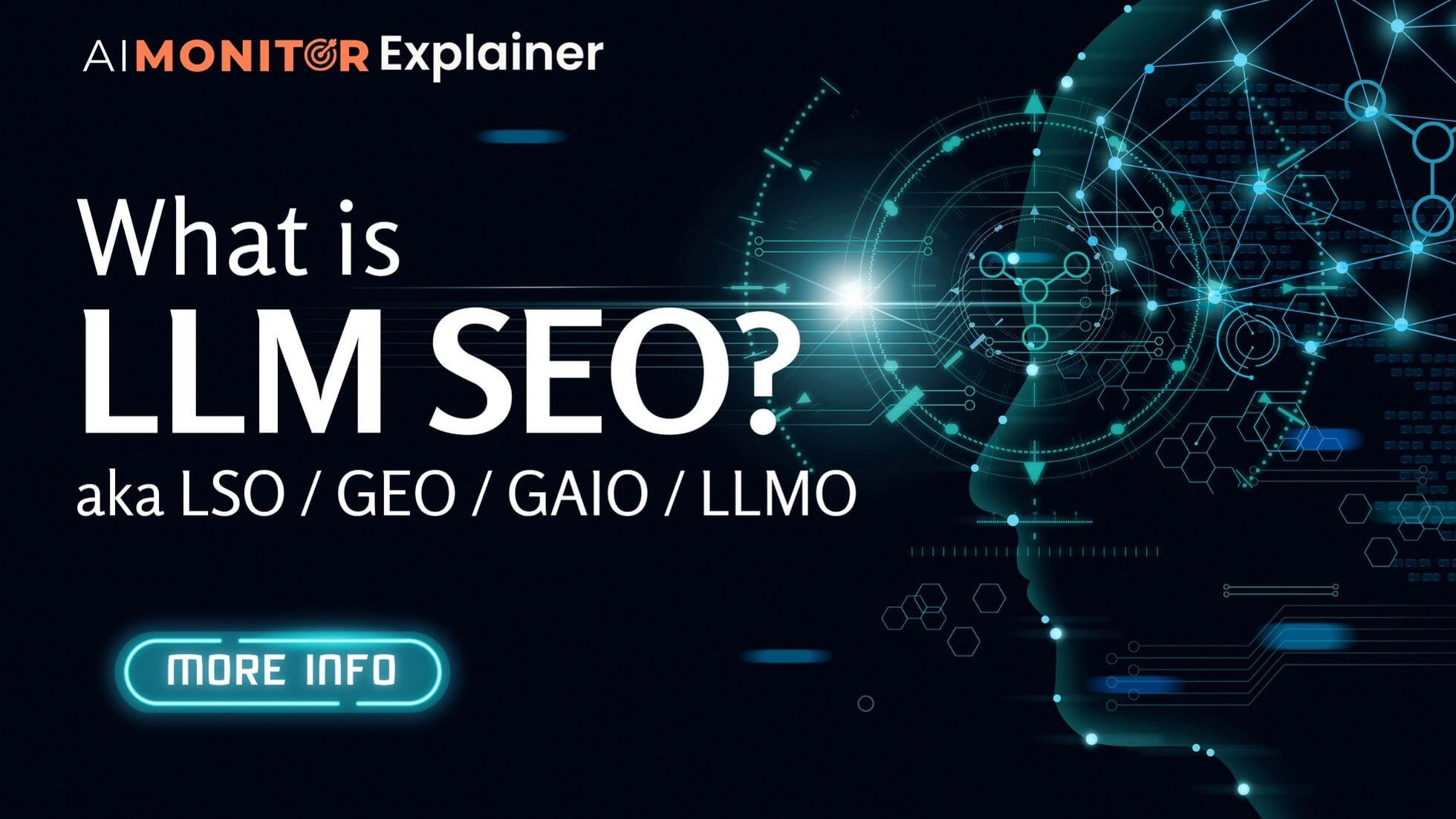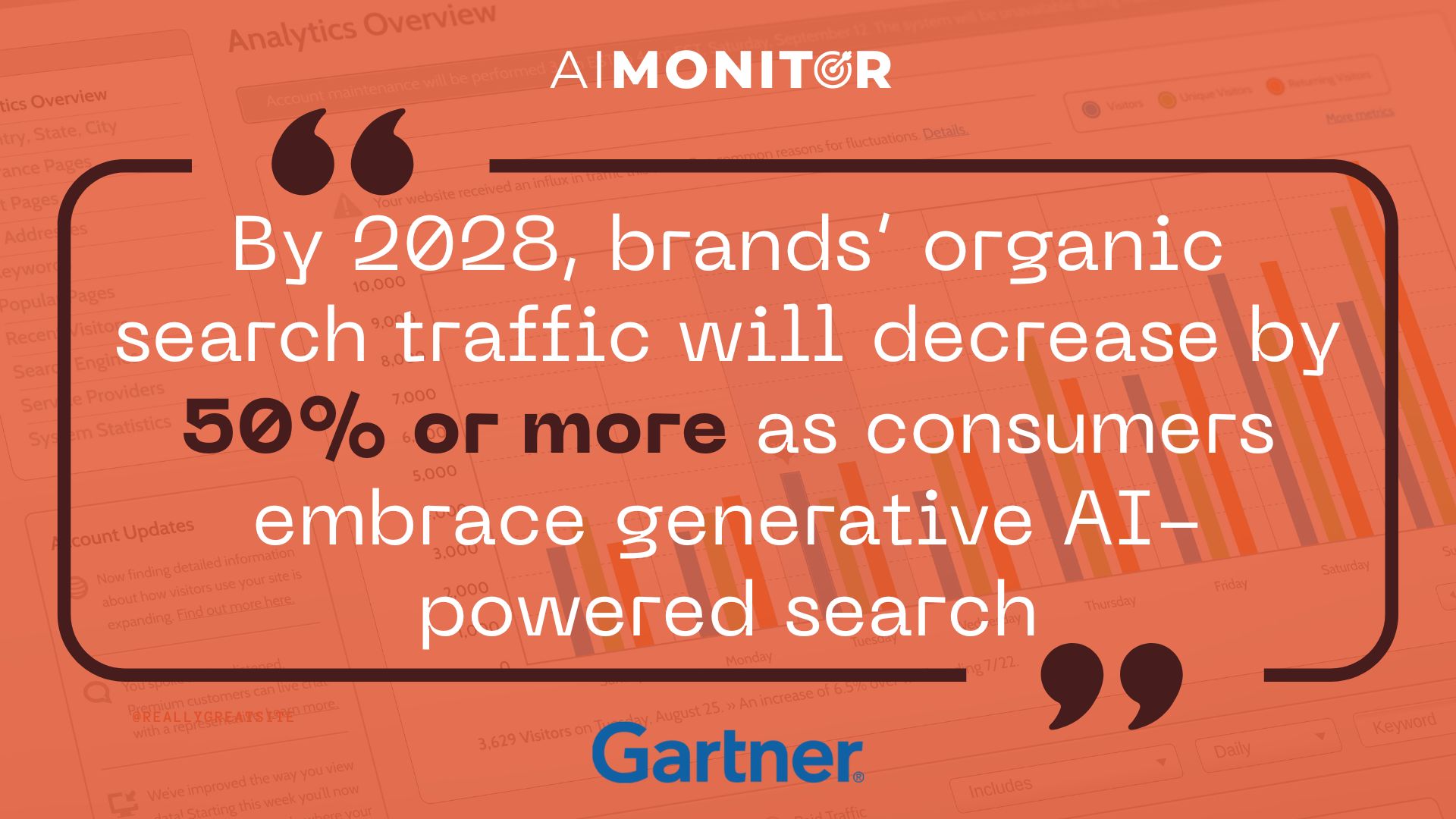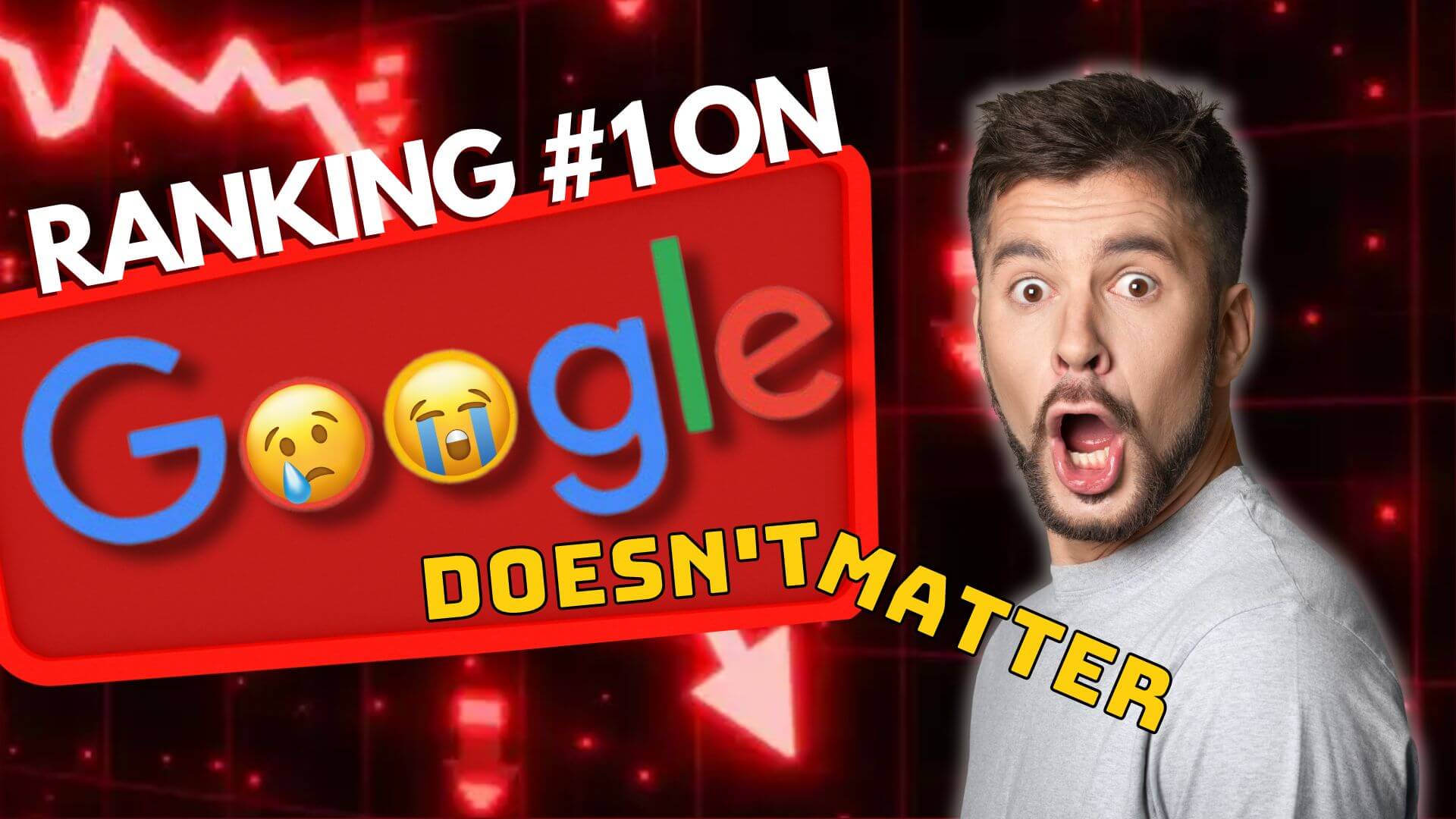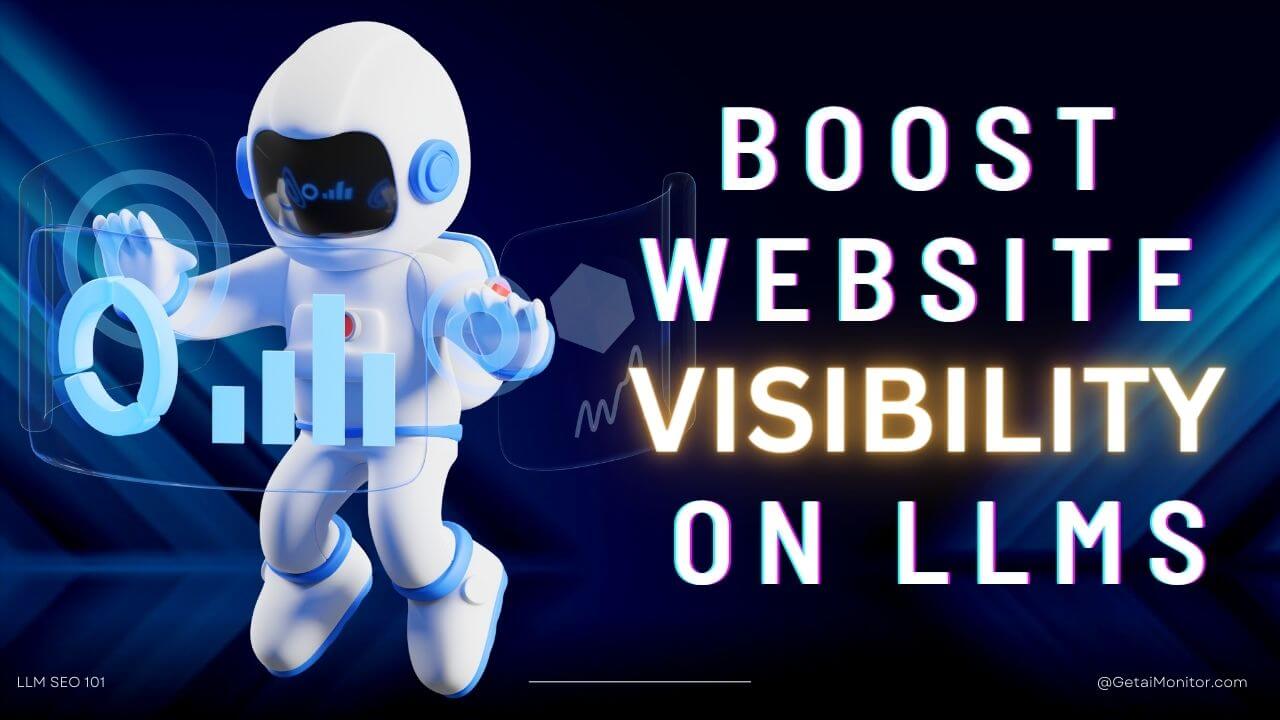- Call us: +1-623-223-7423

Introduction
Before delving into the definitions of these terms, it's essential to understand the context: the way we seek information has fundamentally changed with the advent of large language models (LLMs). As people start using ChatGPT and similar tools instead of traditional search engines like Google, digital marketers face the challenge of ensuring their brands are well-represented across various LLM-powered search platforms.
Definition of LSO / LLM SEO / GEO / GAIO / LLMO
The definitions of all these terms refer to enhancing content for LLM-powered AI search engines like ChatGPT, Microsoft Copilot, Google AI Overview, and Perplexity AI, among others. Since this is an emerging field, there has yet to be a consensus on what term should be used to explain the process of enhancing content for these platforms.
For example, a recent article in the Harvard Business Review simply states it as LLM Optimization. The wonderful people at SearchEngineLand also mention it as LLM Optimization or generative AI optimization (GAIO). At the same time, a team of researchers from IIT Delhi and Princeton have labeled this process Generative Engine Optimization (GEO).
These terms can be uninspiring at best and inaccurate at worst. For example, "LLM Optimization" is commonly used in data science to improve LLM performance and productivity. Additionally, the term GAIO could be catchier. Lastly, the term GEO uses “generative engines" to refer to LLM-powered search engines, which I believe adds more confusion. Most people are familiar with LLMs but may not know what generative engines are.
So, I propose the term LLM Search Engine Optimization, in short, “LLM SEO” or “LSO,” for the process of influencing LLM-powered searches so that their output benefits a particular brand or product.
I will let the industry decide whether they prefer “LLM SEO” or “LSO. The great thing about LLM SEO is that it is pretty self-explanatory but long. On the other hand, the term LSO is simple and short but needs a bit of explanation.
Why is LLM SEO / LSO the Future?
If you don't believe that ChatGPT and similar LLM-powered search platforms will dominate the future, let me list three reasons why:
-
The Rise of LLMs
Apps like ChatGPT and Bing Copilot are becoming increasingly popular, and users depend on them as their primary source of information.
-
Generated AI Answers Limit Web Traffic
AI-powered answers, such as Google’s Generative Search Experiences, push traditional search results down the page.
-
Traditional SEO Doesn't Work in the Age of AI
Traditional SEO strategies concentrating just on keyword optimization are unsuccessful in the AI-powered search era.

As a result, digital marketers now face a new challenge of ensuring their brands are well-represented in the outputs produced by each LLM, which are too numerous to count on one hand. Microsoft’s Copilot, Google’s AI Overview, and Perplexity are the most notable.

SEO vs. LLM SEO / LSO
As you might know, SEO mainly concentrates on improving a website's ranking in traditional search engine results pages (SERPs). For instance, if you search “best project management tools”, you will be shown a list of links that Google thinks are most relevant to your query.
If you are selling a project management tool, these keywords may be crucial for your success. SEO typically involves techniques such as keyword research, creating higher-quality content, and building backlinks.
LLM SEO / LSO, on the other hand, is a newer concept that came into the limelight with the growth of LLM-powered AI search engines. LLM SEO / LSO includes leveraging techniques to enhance a brand or content’s visibility in the responses generated by these new-school search engines.
Moreover, SEO mainly targets traditional search engines that list websites based on user queries. Meanwhile, LLM SEO / LSO focuses on AI-driven search engines that generate comprehensive responses using artificial intelligence.
Conclusion
For the reasons mentioned above, it is very important for businesses to track their brands and content's performance on various LLM-powered AI search engines as they are doing other marketing efforts. My co-founder and I also faced this problem and tried to find tools for it, but they couldn’t find one after much effort, so we decided to launch AI Monitor.
AI Monitor is a powerful tool designed to track brand performance across various LLM-powered AI search engines in response to specific queries. For example, Hyundai may want to monitor the prompt "What is the best family car?"
Key Features of AI Monitor
AI Motool offers a range of features, including tracking brand mentions and content impressions and monitoring competitor activity for specific queries. It also provides alerts to safeguard your brand's reputation in critical situations. Most notable are:
-
Monitor What Matters: Track brand mentions, content involvement, competitor activity, and custom prompts across major LLM platforms.
-
Protect Your Reputation: Identify and address harmful AI-generated content with immediate warning and opinion evaluation.
-
Competitive Edge: Earlier connecting with LSO can provide an essential advantage in the quickly changing digital landscape.
That’s why AI Monitor is now an essential tool for businesses navigating the world of AI search.
Sources:
Avinash
I'm a lawyer and foodie who loves tech, and AI 🤖! For the past 10 years, I have been making law & tech play nice with each other 🤝
Frequently Asked Questions
LLM SEO (Large Language Model Search Engine Optimization) or LSO refers to enhancing brand or content visibility on LLM-powered AI search engines like ChatGPT, Microsoft Copilot, Google AI Overview, and Perplexity AI.
As most users shift towards LLM-powered search tools rather than traditional search engines, optimizing for these platforms ensures that your brand or product is effectively represented in AI-generated responses, maintaining clarity and competitiveness in the digital landscape.
Traditional SEO mainly concentrates on enhancing websites' ranking in search engine results pages (SERPs) through keyword targeting, content quality, and backlinks. LLM SEO or LSO, however, aims to target AI-driven search engines that create a comprehensive response after gathering information from multiple sources to specific user prompts or queries. For instance, a user may ask ChatGPT, “What is the best CRM tool for remote teams?”
Some standard terms include LLM Optimization (LLMO), Generative AI Optimization (GAIO), and Generative Engine Optimization (GEO). Still, LLM SEO or LSO is recommended for its clarity and conciseness.
AI Monitor is a tool for tracking brand performance on different LLM-powered AI search engines for specific prompts. For instance, Hyundai might be interested in tracking “What is the best family car?”
It provides multiple features, such as observing brand mentions, content impressions, and competitor activity for specific prompts. It also provides warnings about certain events to protect your brand's reputation.







